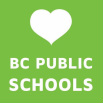|
Curriculum change update
As we begin the 2015–16 school year, it’s important that teachers across the province are aware of the curricular changes currently underway in BC, both the positive aspects and the outstanding concerns. A collaborative process Since 2013, teachers and Ministry of Education staff have been revising the current curriculum. Teams of teachers appointed by the BCTF, the Federation of Independent Schools, and the First Nations Schools Association have worked collaboratively, with Ministry staff facilitating, to update the K–9 curriculum. Work on the first drafts of new Grades 10–12 curricula are expected by the end of August. Revisions aim to simplify and deepen curriculum In general, the revisions are intended to make the curricula more manageable for teachers, and to provide more opportunities for teachers and students to focus on particular topics of interest in their schools and communities. The learning outcomes in several subject areas have been reduced, thus providing more time and flexibility to explore topics in depth. Currently there are 11 curricular areas and the new Core Competencies posted on the Ministry’s Transforming Curriculum and Assessment web page. They are: · Arts · English Language Arts · Science · Social Studies · Physical and Health Education · Mathematics · Français langue seconde-immersion · Français langue première · Core French · Career Education · Applied Design, Skills, and Technology · Core Competencies Use of new curriculum is voluntary this year Teachers and school districts should have received information from the Ministry emphasizing the voluntary, exploratory nature of the draft curriculum for the 2015–16 year. If you wish, you are free to explore the new curriculum, but no one is required to use it this school year and no one should feel pressured to do so. The Ministry will be communicating this message to superintendents as well, so there should be no confusion about this issue. As with all other changes in our day-to-day working lives, teachers are encouraged to use school-based union meetings and staff committee meetings to discuss the issues arising from these significant curricular changes. Aboriginal content interwoven The BCTF strongly supports inclusion of Aboriginal content and understandings across the curriculum. This long-overdue development builds upon work the Federation has already done in supporting employment equity, enhancement agreements, and changes to teacher training programs. Following on the landmark Truth and Reconciliation Commission report, now is an important time to focus on education for reconciliation. Implementation funding still needed The BCTF continues to advocate for sufficient implementation funding to support the draft curriculum. Any funding committed to date falls far short of what we know is required to make implementation successful. The Federation will use every opportunity to push for increased implementation funding, including in our next meeting with the new Minister of Education, Mike Bernier. BCTF reps will emphasize the important distinction between implementation funding and teachers’ autonomous use of professional development funding. Ongoing concerns The process of education change in BC is multifaceted and complex. Some changes are positive, but many ongoing concerns and unanswered questions remain. Support for special education is one key area of concern. Many teachers have heard that the current special education categories, and the funding that flows from them, will be eliminated. A decategorized model for special education raises disturbing issues about how the needs of these students will be met. In addition, there is a lack of clarity about the scope of changes contemplated for students in the senior secondary grades. Teachers are worried that the main objective is to fast track students into apprenticeships or the work force in order to further reduce education expenditures. To learn more about the Ministry’s proposed directions, see Graduation Years Curriculum: Proposed Directions. In BC, as in countries around the globe, teachers and their unions are deeply concerned about the increasing pressures towards privatization and commercialization of public education. Members are encouraged to be aware of these ongoing intrusions into the public good in education. We need to continue promoting the importance and values of public education as outlined in the Charter for Public Education. Dealing with questions from parents If parents of your students come to you with questions about curriculum change, it’s a good idea to direct them to district administrators or the Ministry itself for information. Teachers should feel free to be straightforward with parents in expressing their concerns. As well, you may want to explain that for curriculum change to be successful, resources and support are required—including support for students with special needs. Stayed tuned The BCTF will keep you informed on an ongoing basis as the process of curriculum change unfolds. Watch for webinars, Provincial Specialist Associations’ activities and other supports. Additionally, you may contact your local executive with any questions about the draft curriculum.
0 Comments
Your comment will be posted after it is approved.
Leave a Reply. |
How to post:BCATML's Executive members can add news items here. Please email BCATML president at [email protected] or your Language Rep with a news item or pro-d opportunity that you would like to share. Archives
August 2023
Categories |

 RSS Feed
RSS Feed

